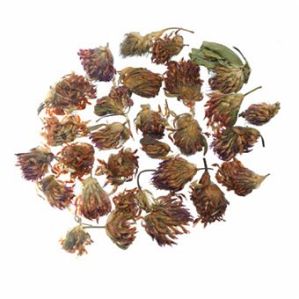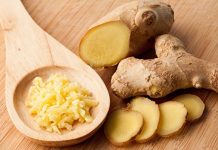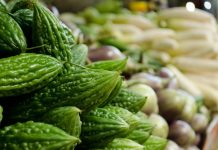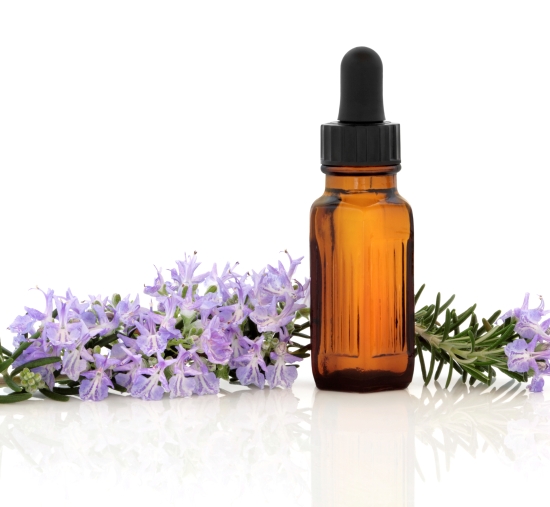Are you tired of every cold and flu season searching the stores for cough and cold remedies that are effective yet don’t have harmful side effects?
Most commercial cold and congestion formulas contain one or more of these chemicals:
 Dextromethorphan HCL – A cough suppressant which can cause drowsiness,
Dextromethorphan HCL – A cough suppressant which can cause drowsiness,- Acetaminophen – A pain reliever which can cause liver damage in large quantities,
- Guaifenesin – An expectorant which can cause dizziness, or
- Pseudoephedrine or Phenylephrine– Decongestants which can cause restlessness, anxiety, sleeplessness and headaches.
Did you know that some of the most effective chest congestion remedies are readily available, fairly inexpensive, have little to no adverse effects and have the added benefit of being good for you?
Here are a few herbs to keep handy in your home…
1. GARLIC
Garlic is valued by both chefs and herbalists alike. It is a versatile culinary spice with medicinal properties. It is antibacterial, antifungal and antiviral, which makes it an excellent remedy for most respiratory infections. It has been shown in several studies to not only reduce cold and flu symptoms, but shorten the duration of a cold.
In addition to being a natural antibiotic, garlic has also been found to help lower cholesterol. It acts as a natural anticoagulant and helps dissolve cholesterol in the blood stream. Many naturopaths and herbalists recommend taking garlic on a regular basis to help fight high cholesterol and heart disease.
Garlic is best eaten fresh, crushed and added to soups or other dishes. But for those who cannot tolerate its pungent taste, garlic extract is also available over-the-counter in tablet and capsule form. The recommended dose is 600 to 1,200 mg daily, divided into individual doses, or 2 to 4 grams per day of fresh garlic.
2. ECHINACEA
Echinacea, or purple coneflower, is a folk remedy native to North America. It is a long-standing remedy for the common cold and flu. It is naturally antioxidant and antibacterial, and has been shown to help strengthen the immune system.
Traditionally Echinacea has been used to treat a variety of cold symptoms, including sore throat, cough and chest congestion. It is most commonly taken as an herbal tea, up to three times per day. It is also available as a standardized extract in capsule or tincture form. The recommended dose is 300 mg or 1 to 3 mL, three times per day, for up to 7 days.
3. LOBELIA
Lobelia is a native folk remedy for respiratory problems. It is sometimes referred to as Indian tobacco. But, unlike traditional tobacco it is not inhaled, but consumed as an herbal tea.The use of lobelia as a tobacco substitute has been banned by the U.S. Food and Drug Administration.
It is naturally antioxidant and expectorant, and is used by herbalist to treat asthma, bronchitis and chronic cough. It has also been used in smoking cessation programs to help reduce the effects of nicotine.
Lobelia can be found in liquid extract or dried capsule form. The recommended dose is 2 oz. of dried herb, four times per day, or .6 to 2.0 mL of liquid tincture up to three times per day.
4. RED CLOVER
Although generally thought of as fodder for cattle, red clover is an age-old remedy for respiratory illnesses. Traditionally herbalists used the herb to treat whooping cough. It is naturally expectorant and considered a natural blood-purifier.
Today, scientists have found that it has a number of health benefits. It is rich in vitamins and minerals, including vitamins B1 and B3, vitamin C, calcium, chromium, magnesium, potassium and phosphorus. It is also high in isoflavones, chemicals which have an estrogen-like effect on the body, and can be used to address many menopausal symptoms, including osteoporosis.
It is generally taken as an herbal tea, although it can also be found in liquid extract and capsule form. The typical dose is 40 to 160 mg per day, or 3 to 5 mL, three times per day.
5. FENNEL
Fennel is an Ayurvedic remedy for gas and indigestion which doubles as a natural cough and chest congestion remedy. It is considered carminative, or soothing to mucous membranes. It is also naturally antioxidant and antibacterial.
While fennel seeds are commonly chewed to treat indigestion and upset stomach, the juice of the seeds are used as a cough syrup. Simply crush or juice 1 to 2 teaspoons of fresh fennel seeds and add to one teaspoon of honey. Take 3 or 4 times per day until symptoms subside.
REFERENCES
- University of Maryland Medical Center: Alternative Medicine Index: https://www.umm.edu/health/medical/altmed











